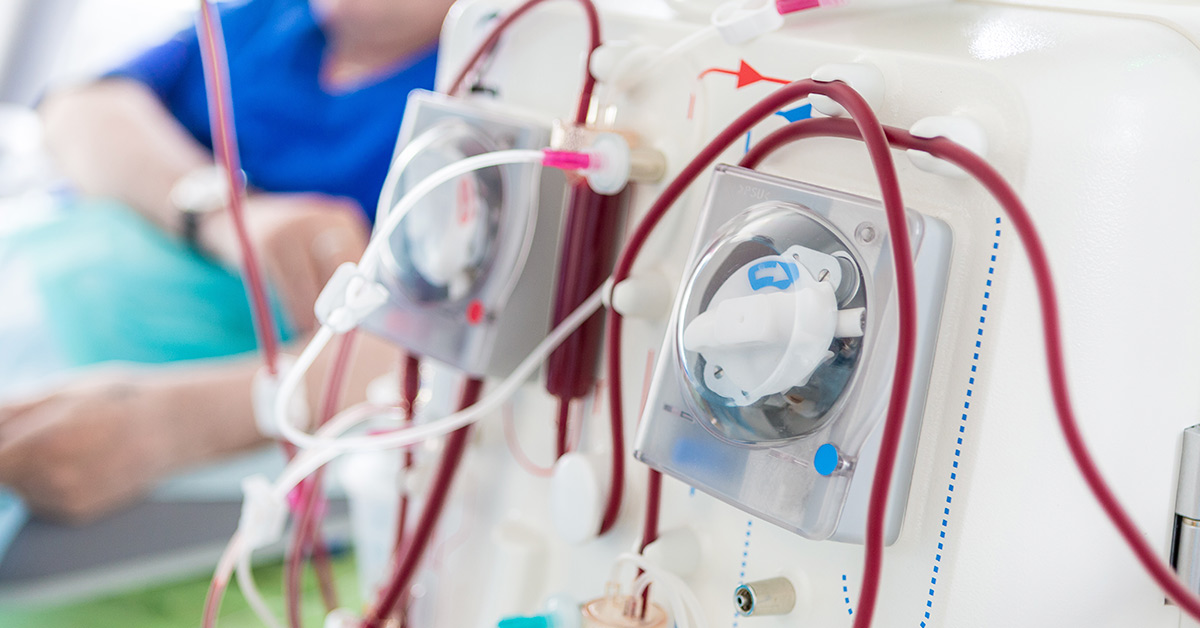There are over 100 thousand people awaiting a kidney transplant in the United States, and someone is added to that list every fourteen minutes [1]. The average wait-time for a kidney is between three and five years, and thirteen people die every day waiting to receive a transplant. The organ shortage in the United States leaves thousands of patients on dialysis while they wait to receive a new kidney, but scientists may have solved this problem by developing the world’s first artificial kidney.
The Kidney Project
William Fissel from Vanderbilt University and Shuvo Roy from the University of California, San Francisco have launched the Kidney Project to address the shortage of kidney donations in the United States [2].
They have developed an artificial kidney that uses living kidney cells along with specialized microchips that are powered by the heart to perform the actions of a healthy kidney [2].
“We can leverage Mother Nature’s 60 million years of research and development and use kidney cells that fortunately for us grow well in the lab dish, and grow them into a bioreactor of living cells,” explained Fissell in a recent article published by Research News Vanderbilt. The artificial kidney can reliably distinguish between waste chemicals and nutrients that your body needs and only requires common surgery to be inserted into the body.
What Does Your Kidney Do?
Your kidneys perform a variety of functions that are vital to your life, including:
- maintaining overall fluid balance. The kidneys make sure that your extracellular fluid (aka your blood plasma) does not become too diluted or too concentrated [4].
- regulating and filtering minerals from blood. Specifically, the kidneys are responsible for maintaining constant levels of important minerals like sodium, potassium and calcium.
- filtering waste materials from food, medications, and toxic substances. The kidneys filter out waste products and environmental toxins into your urine to be excreted.
- creating hormones that help produce red blood cells, promote bone health, and regulate blood pressure
If your kidneys fail, it means they are no longer able to filter waste products from your blood. Dangerous levels begin to accumulate and your body’s chemical makeup becomes unbalanced [5].
Dialysis for End Stage Kidney Failure
When a patient is experiencing end-stage kidney failure, their only option is to have a transplant. Since the waiting list for a transplant is so long, however, they will be put on dialysis until they can receive a new organ. Dialysis can perform some of the actions of a healthy kidney, like removing waste, salt, and extra water, balancing potassium and sodium levels in the blood, and helping to control blood pressure [6].
The dialysis process is time-consuming and arduous. It typically occurs at the hospital, although it can be done at home, and requires three to four hours, three times per week [6]. If you are unable to receive a kidney donation, you will have to be on dialysis for the rest of your life, with an average life expectancy of five to ten years.
The Artificial Kidney Providing Hope
The artificial kidney developed by the Kidney Project contains fifteen microchips that are controlled by the heart and act as filters. They hold living renal (kidney) cells that will eventually grow around the chip and mimic a real kidney. This new “man-made kidney” will actually work better than dialysis and provide a much more permanent solution for patients beyond dialysis. It will also provide a longer-term and more effective solution than a real kidney transplant [7].
Engineers are currently working to test every aspect of the device to ensure its efficacy and safety before human trials begin. If the device is successful, it could eliminate the need for dialysis, solve the organ shortage crisis, and save national health care dollars.
Keep Reading: Goodbye Dental Implants? Dentist Grew New Teeth in Just 9 Weeks
Sources
- “Organ Donation and Transplantation Statistics.” Kidney.
- “This Artificial Kidney Eliminates The Need For Kidney Dialysis.” Wonderful Engineering. Ali Vaqar. November 19, 2017
- “Kidney Overview.” Healthline. Tim Jewell. May 22, 2018.
- “KIDNEYS.” MCB.
- “Acute kidney failure.” Mayo Clinic
- “Dialysis.” Kidney
- “The Kidney Project.” Pharm.

